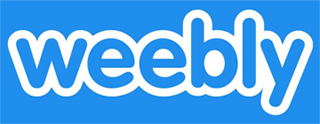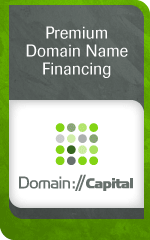|
January
2015. A lot of time has passed since
I last looked at the latest trends
in the development space, so when I
had a chance to catch up with Chris
at the 2018
NamesCon conference in Las
Vegas I made arrangements to get
together with him after the show for
an in-depth interview on the topic
to share with our readers - a
discussion you can read in full
below.
DNJournal:
Development has always been
considered to be hard, time
consuming work but powerful website
building platforms have arisen in
recent years to shoulder some of the
heavy lifting. Weebly is always one
of the select few companies
mentioned in this field, along with
platforms like WordPress, Wix and
Squarespace. Having spent many years
as a leader in both the domain and
website development fields what do
you see as the key features that
make your company's platform the
right choice for domain owners who
want to take the next step and start
building sites?
Chris
Sheridan: I have been
fortunate in my career to have
worked on both sides of the domain
business. On the registry side with
VeriSign, working with the top
domain com/net domain registrars and
on the registrar side, as VP of
business development with eNom.com.
The approach around developing
domains as a monetization strategy
is continuing to evolve as the
domain industry has changed since my
first days at VeriSign. As other
monetization platforms have become
less lucrative and domainers become
more innovative, I’m seeing a
shift toward the authentic
development of domains into full
websites. And for this
audience, there is no question that Weebly
Cloud is the ideal
platform. Here is why:
1)
Many under one: To put
it simply, Weebly Cloud is an
enterprise platform built for people
who manage multiple sites.
This fits perfectly for domain
investors who typically own multiple
domains. As they are developed
into websites, domainers need tools
to manage these sites at scale,
examples include adding team
members, site permissions, copy site
functionality, etc. These type of
features enable growing at scale and
allow a small team to manage a big
portfolio of websites.
2)
Professional with no coding
required: Domainers want
results, and Weebly Cloud makes it
possible to build
impressive-looking, modern websites
quickly without any coding
knowledge. No quality is lost
and it is a great platform to
quickly train others to create these
sites on their behalf. Our platform
is striking a balance between speed
and quality.
3)
Ability to drive traffic:
The heart of monetization is
traffic, so a key feature of Weebly
Cloud are functions that help make
this happen – from SEO tools (metatags,
keywords) to integrating a Google
Analytics account. In addition, our
partners can leverage over 250+ apps
available in the Weebly
App Center. Conversely,
if a partner has a custom app they
want to upload to their site, we
support the creation and management
of custom apps as well.
DNJournal:
Among the competing solutions,
WordPress, is an especially familiar
name having been on the scene for
many years and now and reported to
power over a quarter of all
websites. If the choices boiled down
to those two what would your
argument be in favor of Weebly?
Chris
Sheridan: It’s a great
question and one I get all the time.
Weebly and WordPress are two great
solutions, but they serve
different markets. At a high
level, WordPress targets a savvier
customer who has experience with
coding, plugins, extensions, graphic
design etc. They are managing their
own server. They can code.
They are adept at handling plug-ins.
|

Image
from Bigstock |
The
Weebly customer is
different. Our
research tells us that about
50% of small to
medium businesses (SMBs) in
North America don’t yet
have a web presence.
This is who we are targeting
with our DIY
education campaigns because
this audience really wants
to get online, however doing
that can seem overwhelming
due to a couple
misconceptions: 1) SMBs
believe they need to hire
someone and pay a lot of
money to get a site built
and 2) They are under the
impression that building a
website takes a lot of time
that they don’t have
(because they are busy
running their business)
In
short, offline SMBs
typically have no coding
experience but they want to
be online. Our goal at
Weebly is to continue to
educate the market that
Do-It-Yourself tools exist.
These tools |
|
are
easy (think, drag ‘n drop
editor) and they can produce
beautiful high quality
sites. As discussed this
specific non-coding offline
market is big. The reason
registrars, hosts, and
telcos are using the Weebly
Cloud platform is to target
this market with a
competitive solution that
directly addresses the time
and pricing misconceptions
in the market. I think it is
also worth noting that the
Hosts we work with are using
both Wordpress (WP)
and Weebly to tackle the
market. It doesn’t come
down to using one over the
other. WP is a perfect
solution for the savvier
tech customer and Weebly is
perfect for those SMBs with
no coding experience but a
big desire to get their
business online and also
leverage other basic
services from hosts like a
professional domain name and
business class email
service. In these basic SMB
focused bundles, we have a
lot of success with our
Host, Registrar, and Telco
partners. |
DNJournal:
In addition to the Weebly retail
product that the developer of a lone
site would focus on, the Weebly
Cloud product is a scalable solution
that can be used in a couple of
ways. Registrars and hosting
companies can incorporate it into
their offerings as a value add and
any company/organization could also
use it to develop multiple websites
to serve various parts of their
enterprise. At NamesCon 2018 you
talked about the Weebly Cloud
platform and what you have planned
for it this year. Can you summarize
what you told attendees there?
|
Chris
Sheridan: I had
the opportunity to meet with
a number of existing clients
and potential new ones at
NamesCon that is for sure!
What I found is that senior
executives at these
companies really responding
to is the Weebly point of
view that the website has
become truly strategic and critical
to the success of the domain
and hosting business.
In other words, when I
started at VeriSign the
focus in the web hosting
industry was selling domains
and the “website” was
literally a feature on a
laundry list of feature
benefits. Fast forward to
today, websites have now
become full blown living and
breathing platforms (not
static pages). Customers are
basing their buying
decisions on your website
offering. If they decide to
purchase from you, they will
spend the rest of their time
logging in to build, create,
sell, market, and share this
site. |

Hexonet
CEO Jens Wagner (left)
with Weebly's
Chris Sheridan at NamesCon
2018 in Las Vegas. |
|
This
type of engagement is
powerful. Thus, the
“website” offering has
become the top of the
funnel. The market has taken
notice of this and is
reprioritizing their
engineering roadmaps,
marketing plans and product
decisions around this
change. |
We
also discussed the other big growth
driver in the SMB market - ecommerce.
In the Weebly retail business we now
service 50 million retail
customers. One of the fastest
growing segments of our business is
ecommerce, the ability to sell your
product online. Our partners also
see this trend as well and want to
ensure they are capturing their fair
share of the ecommerce opportunity.
On Weebly Cloud, we offer two
ecommerce plans that directly target
this growing market - the Business
Plan and Performance Plan. We are
working with partners to market the
features that matter to this base
i.e. real time shipping, gift cards,
abandon cart emails, tax management,
inventory management tools, etc.
My
general conclusion from NamesCon is
that the ecommerce customer is a big
target for the registrar and web
hosting markets. And it should be
because these are higher value
customers in terms of revenue. They
will spend more on domains,
security, marketing, SEO, SEM, etc.
In 2018, it is important to me that
we are enabling ecommerce success
for our channel.
DNJournal:
Nearly all domain investors own
multiple domain names. Would
the Weebly Cloud product fit the
needs of domain portfolio owners who
ideally would like to convert as
many domains as possible to useful
sites - or would Weebly's retail
product be a better fit?
Chris
Sheridan: It really
depends on the domain investor’s
goal – just how much do you want
to develop your real estate?
Like I said earlier, the decision to
develop a domain name into a website
depends on the monetization
strategy. Personally, I think
there is a continuing evolution for
monetizing domains, with many of
them going from a short game to a
long game.
If
you want to build out domains in
your portfolio into authentic
business, including ecommerce, then
take advantage of the full
horsepower of Weebly Cloud with
features like mobile responsive
themes and ecommerce tools that can
give you efficiencies at scale.
|

Image
from Bigstock |
DNJournal:
The feature set of website
building platforms grow
every year. Now everyone is
talking about the advances
being made in artificial
intelligence, virtual
reality and cryptocurrency.
How do you see Weebly
evolving with the new
possibilities being created
by these technologies?
Chris
Sheridan: This is
a great question. What
is interesting to me is that
I see a direct correlation
between getting people
online and the future of
these new technologies.
In order for new tech to
have impact and be relevant,
people need to be online.
There are still so many who
are not; and the more that
they come online, and then
the more relevant these new
technologies will become and
make them better.
For
Weebly, our focus is to
build the foundation to 1)
bring people online and 2)
help our ecommerce customers
sell. Think about it.
We have 50 million websites
and thousands of Cloud
partners and we are
committed to their success;
so if any new technology
presents an |
|
opportunity
to make our customers better
sellers and Cloud partners
more competitive, we are
in! The stronger the
foundation, the more we can
make it possible for new
technologies like these to
flourish.
|
DNJournal:
Before we go, are there anything
else interested in developing
websites should know about Weebly
and Weebly Cloud?
Chris
Sheridan: Coming full
circle, early in my career I viewed
this landscape from the perspective
of domains first. Now that
I’m on the other side (i.e. the
DIY and DIFM markets), I see an
impending intersection between the
domain industry and website industry
in terms of driving growth.
Website
development is a big market and is
complemented by an expansive
ecosystem (think apps, themes,
mobile, ecommerce etc.): Taken
together the website industry is
moving the needle on getting
consumers online. The industry
has become the onramp to the web for
personal sites, blogging, and
stores.
This
growth is key to the success of
the domain name business from
the registry and registrar level.
Thus I envision deeper collaboration
between our two industries this
year. The website industry will
continue to grow the market and
bring new customer to the web. These
customers will need domains, email
and other online services provided
by registrars. Our collaboration
should focus on the following: Maximizing
this growth, Continued education
of the market on the value of
websites and domains, and Continued
innovation in our industry - to
me that could be as simple as making
it even easier to get online and get
a domain or innovation that
continues to remove friction on
establishing your web
presence.
|













